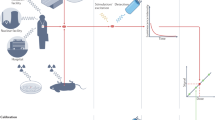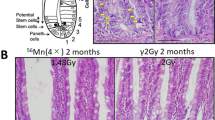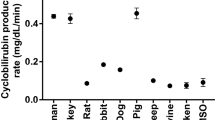Abstract
A SYSTEMATIC study of metabolic radiation by a modified photographic method in this laboratory (to be published at a later date) has revealed the following facts : (1) Radiation is a general function of normal organic metabolism, being exhibited by blood, milk, eggs, brain, bone-marrow, lung, the pituitary (anterior and posterior lobe) and the parathyroid gland, urine, roe of plaice, yeast, Demerara sugar, honey, etc. (2) Radiation fades with the lowering and re-appears with the raising of temperature; it is inhibited at -5° to -10°, destroyed by heating at 98°–100° for two hours, inhibited by carbon monoxide in the dark but regenerated in sunlight, and destroyed by hydrogen peroxide, potassium permanganate and potassium cyanide. (3) Pure cholesterol, vitamins (C and D), sucrose, hormones and alkaloids as such are void of radiation.
This is a preview of subscription content, access via your institution
Access options
Subscribe to this journal
Receive 51 print issues and online access
$199.00 per year
only $3.90 per issue
Buy this article
- Purchase on Springer Link
- Instant access to full article PDF
Prices may be subject to local taxes which are calculated during checkout
Similar content being viewed by others
Author information
Authors and Affiliations
Rights and permissions
About this article
Cite this article
COPISAROW, M. Radiation and Enzyme Activity. Nature 130, 1001–1002 (1932). https://doi.org/10.1038/1301001b0
Issue Date:
DOI: https://doi.org/10.1038/1301001b0
This article is cited by
-
Malignant growth in relation to enzyme activity
Protoplasma (1935)
Comments
By submitting a comment you agree to abide by our Terms and Community Guidelines. If you find something abusive or that does not comply with our terms or guidelines please flag it as inappropriate.



